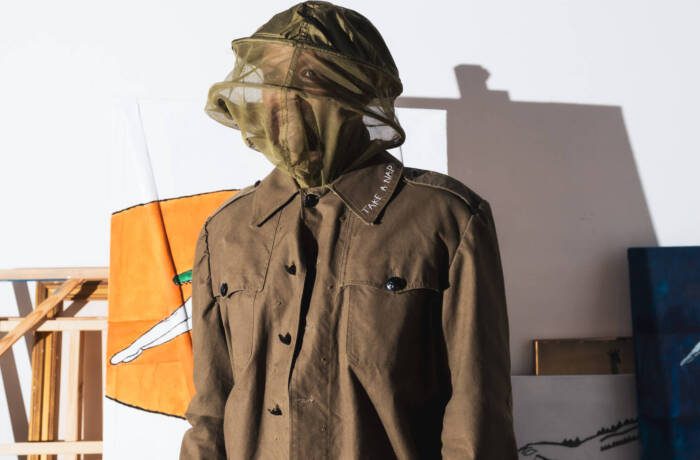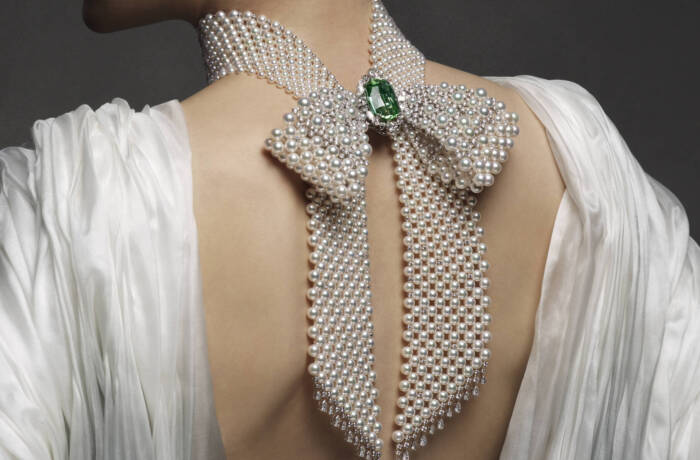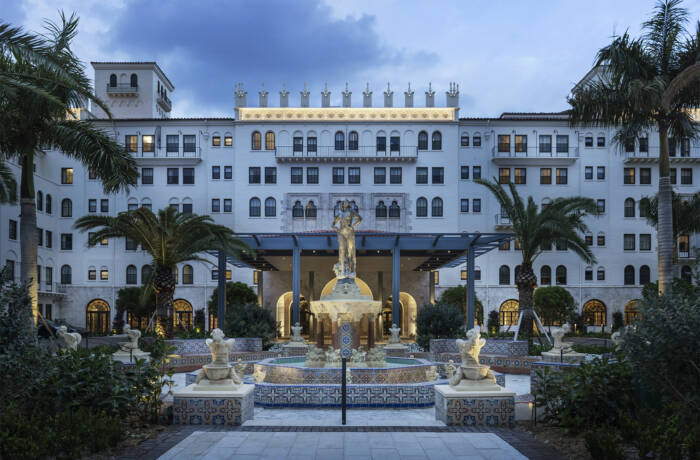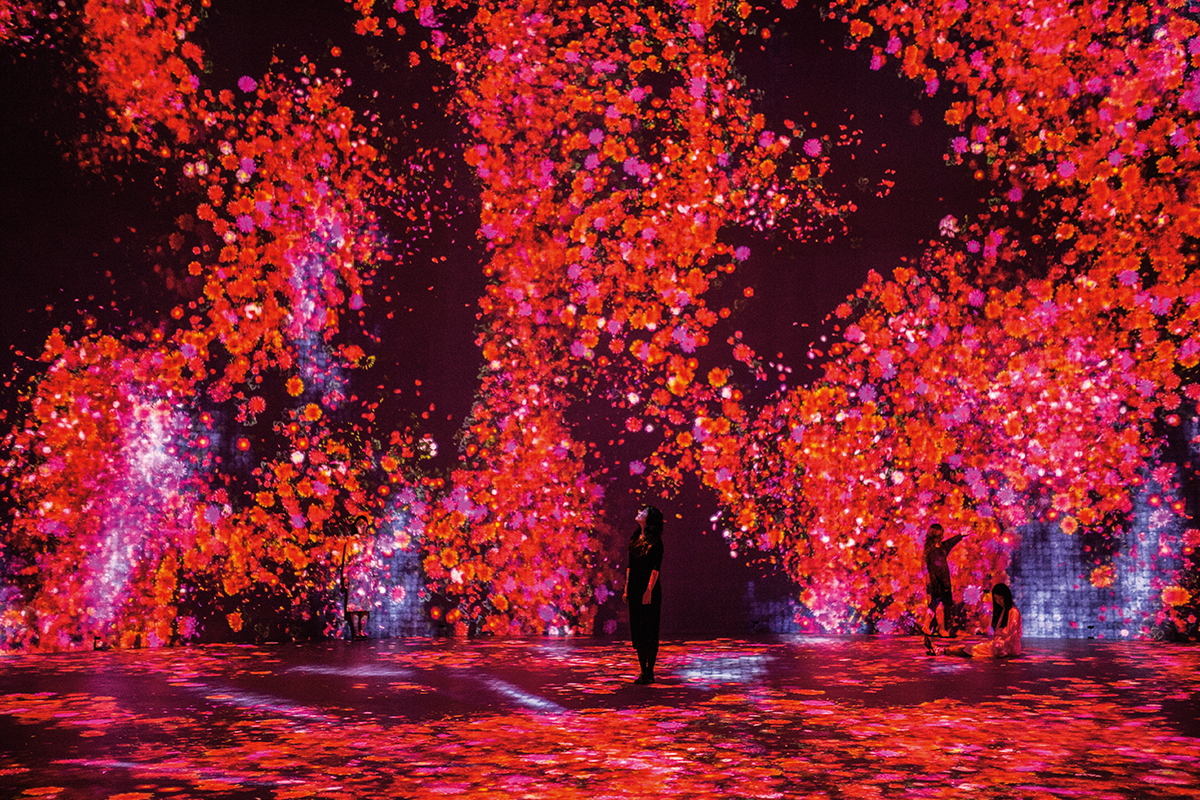
Installation by teamLab, Flowers and People, Cannot be Controlled but Live Together – Transcending Boundaries, A Whole Year per Hour (2017). Courtesy of Superblue
Blue-blooded art dealer Mollie Dent-Brocklehurst has always been known for her creativity.
She has now teamed up with Pace Gallery CEO Marc Glimcher to create an innovative, social media-friendly art experience that she plans to roll out around the world. Millie Walton discovers more
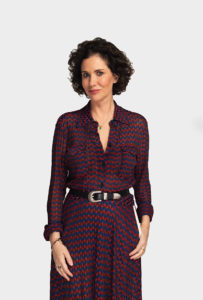
Mollie Dent-Brocklehurst
British aristocrat and art dealer to the private jet set Mollie Dent-Brocklehurst has had numerous highs in a career which has encompassed creating sculpture parks at her family’s castle and driving the London operations of Pace, the global super-gallery.
But, she says, in the last couple of years, something began to bother her and Marc Glimcher, the CEO of Pace and her longtime business partner. They had long been known for curating and organising exhibitions with a focus on public art and experiential installations. But, she says, “[while] these artists were doing really amazing things, there was no way to financially compensate them unless a museum bought the work”. And so she and Glimcher began to develop the business model for Superblue, a new private art exhibition concept based on ticketed revenue that supports both the company and the artists by paying them a cut of sales.
Follow LUX on Instagram: luxthemagazine
It is a suitably cutting-edge concept for Dent-Brocklehurst, who is known for her own creative ideas. On her father’s side, the Superblue co-founder hails from a blue-blooded English family who still own their ancestral home, Sudeley Castle in the Cotswolds, which was home to one of the wives of Henry VIII. Her American mother is the daughter of a Kentucky doctor. Over the years, Dent-Brocklehurst, who is married to celebrated sculptor Richard Hudson (they live in a converted industrial unit in London that also serves as an exhibition space and studio) has developed a reputation for bringing forward-thinking art concepts from around the world to the London scene.
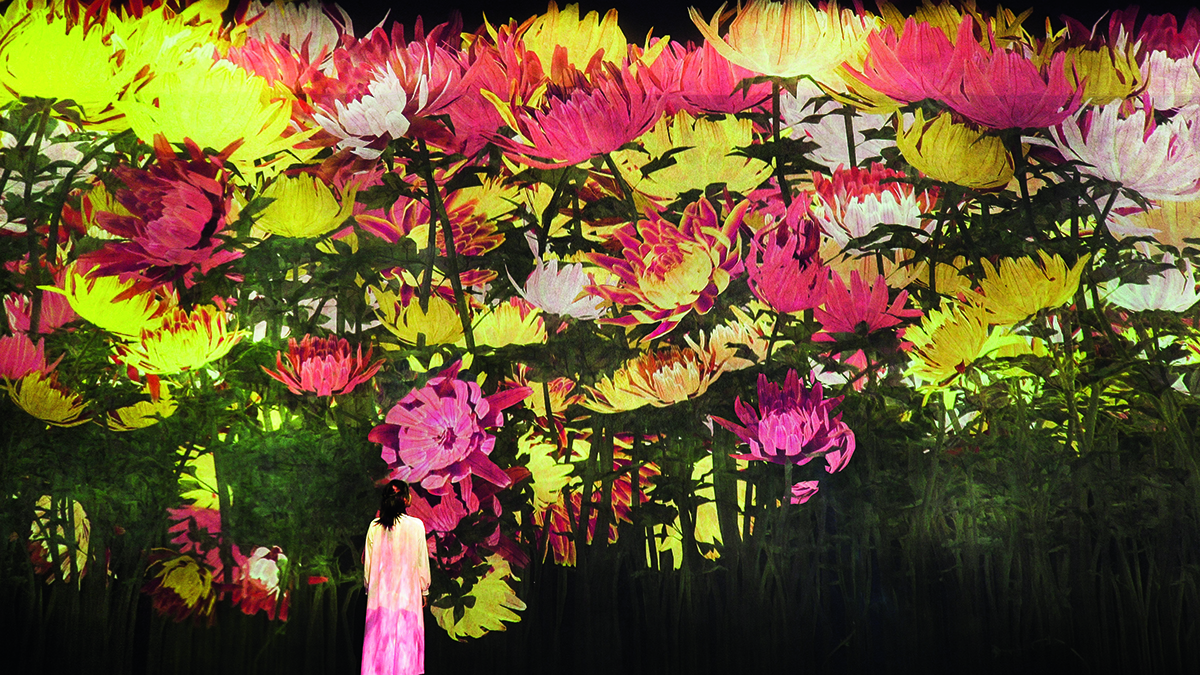
Proliferating Immense Life – A Whole Year per Year (2020) by teamLab. Courtesy of Superblue
The Superblue project kicks off in Miami this spring. Its purpose-built ‘experiential art centre’ provides a blank canvas for both the creation and experience of art. “Typically art that goes into a museum is either donated or purchased by wealthy patrons, so there is a sort of gate-keeper to the kind of art that gets exhibited, but what we’re doing is inviting the public to be the selector of the art. If they like it, it exists; if they don’t, it doesn’t,” says Dent-Brocklehurst. Is she worried about the uncertainty of the present moment? “It was already a very Covid-friendly concept. It’s a huge space and there’s a limit to the amount of people who can be there at any one time to prevent the overcrowding of the experiences.”
Superblue’s focus on experiential artworks, which use vibrant colours, light-filled rooms, reflective surfaces and elements of augmented or virtual reality, inevitably resonates with a fast-paced, image-focused culture. Its inaugural Miami exhibition ‘Every Wall is a Door’, for example, features work by pioneering light and space artist James Turrell, Japanese collective teamLab, and celebrated stage designer and artist Es Devlin. The concept also seems designed to maximise social media impact. Does that cheapen the experience of the art? “I’m sure people will Instagram the artworks as they are very visually exciting,” says Dent-Brocklehurst, “but I think what we’re trying to achieve with this group of works is something which is much deeper and more fundamental.”
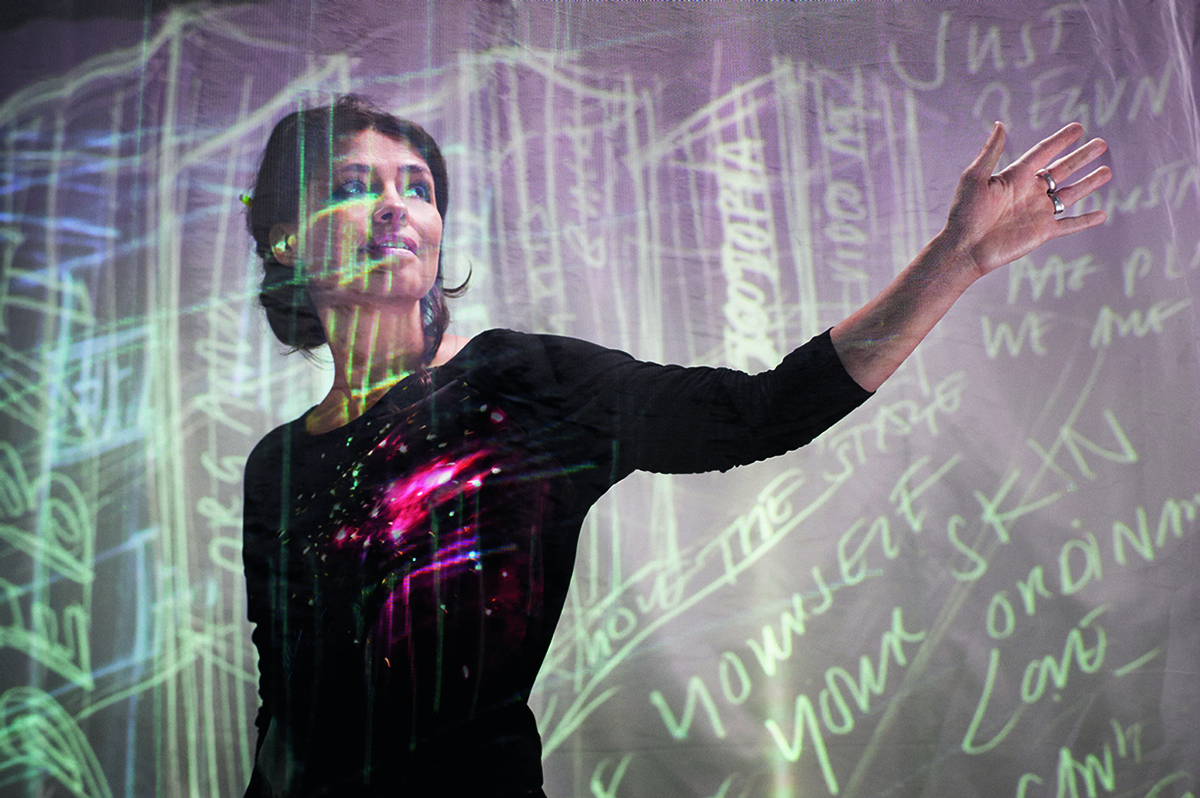
Es Devlin. Photograph by Jasper Clarke
This is perhaps most evident in Es Devlin’s installation Forest of Us which leads visitors on a journey through the human respiratory process, emphasising our reliance on trees for breathable air and the issues of climate change resulting from deforestation. The piece begins with a film on a perforated screen surface which allows viewers to pass through into a mirrored maze incorporating different performance elements along the way.
Read more: Umberta Beretta on fund-raising for the arts
A tree planting project is also being developed to support reforestation in the Amazon. “Landscape painting has always helped us tune our eyes into nature by framing it, telling us where to look. These works behave in a similar way. They focus our attention on particular phenomena, guiding us to perceive these phenomena where we find them at work in the world,” says Devlin.
It’s not just Devlin, however, whose practice engages with wider social issues. According to Dent-Brocklehurst, it is something that connects many experiential artists. “They have a very embracing kind of attitude towards their audience and the way that people can engage and interact with their work,” she says. “There’s a sense that they can lead a change through the experience of the work.”
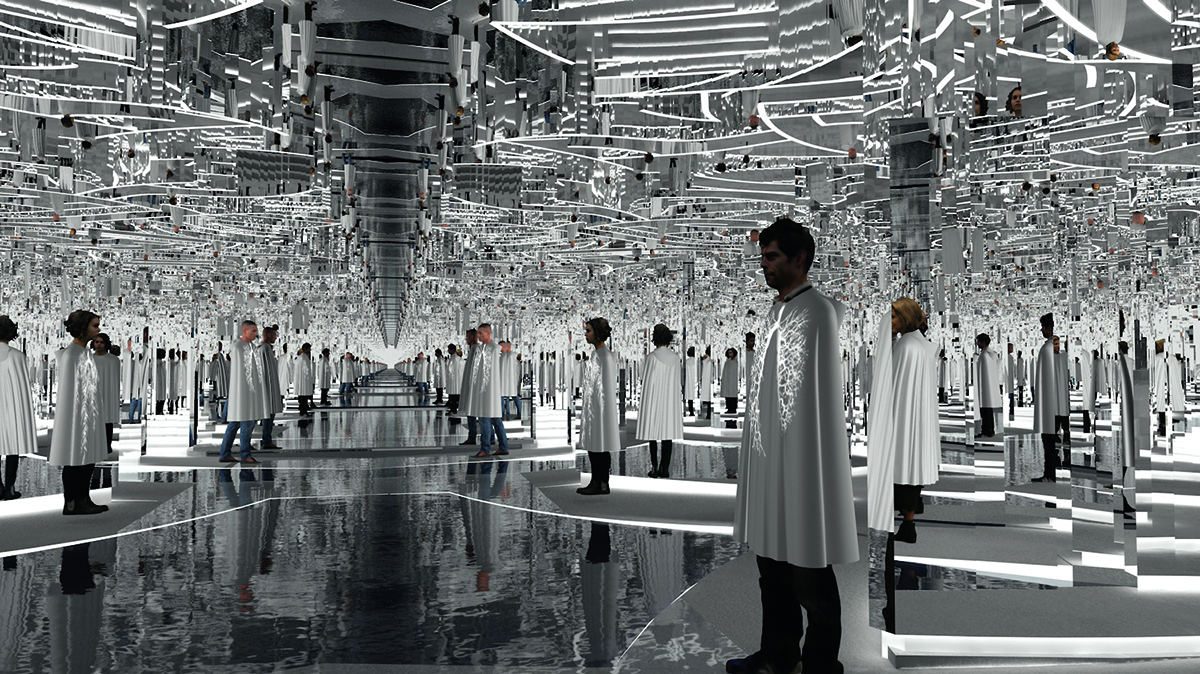
Forest of Us (2021) by Es Devlin. Courtesy of Superblue
Superblue isn’t quite the first of its kind – teamLab already runs its own immersive enterprise, teamLab Borderless, located on Tokyo’s waterfront, which drew 2.3 million people in its first year of opening. But what’s unique is the exhibiting of multiple large scale installations simultaneously. Added to that, the artists are more or less given freedom to make what they want. “Our concept was not to curate [Every Wall is a Door] but to give a spectrum of the most important and relevant moments of experiential art,” explains Dent-Brocklehurst.
However, the hope is that the exhibitions will draw new audiences who encounter the art through curiosity. “I think we long to be surrounded,” says Devlin. “We are so used to the act of translating 2D into 3D, to conjuring worlds from a phone-sized rectangle, we forget that it’s a continual act of imaginative labour. It’s a relief to be physically surrounded in three dimensions.”
While Superblue’s next destinations are yet to be revealed, their plan is to expand across the US and internationally, building a network of venues across which the artworks can travel. “It’s about the art coming to the people rather than the other way around,” says Dent-Brocklehurst.
Found out more: superblue.com
This article was originally published in the Summer 2021 issue.

